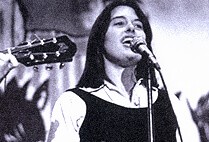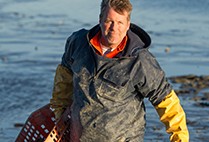Peter Guralnick has made a highly respected name for himself documenting the flowering of American blues, rock ’n’ roll, and root music, writing meticulously researched, absorbing biographies of Elvis Presley and Sam Cooke and collections of portraits of legends like James Brown, Aretha Franklin, and Otis Redding. His new book is titled, perhaps for the benefit those who never heard of him, Sam Phillips: The Man Who Invented Rock ’n’ Roll; How One Man Discovered Howlin’ Wolf, Ike Turner, Jerry Lee Lewis, Johnny Cash, and Elvis Presley, and How His Tiny Label, Sun Records of Memphis, Revolutionized the World! (Little, Brown, 2015). From Phillips’ tiny Memphis studio, which Guralnick helped bail out after a flood before their first official interview, came a sound that married black and white voices and traditions, a sound, revolutionary in its time, that we take for granted today.
Earning widespread praise in the literary world, Guralnick (CAS’67, GRS’68) is also a favorite among musicians. Lucinda Williams says he “tells it like it was.” Last Train to Memphis, the first book of Guralnick’s acclaimed two-volume Elvis Presley biography, moved Bob Dylan to comment that “Elvis steps from the pages, you can feel him breathe.” An inductee into Chicago’s Blues Hall of Fame, Guralnick won a Grammy Award for his liner notes for Sam Cooke Live at the Harlem Square Club and was a scriptwriter for Martin Scorsese’s blues documentary, Feel Like Going Home. Sam Phillips was named one of the best books of 2015 by New York Times critic Dwight Garner, who called it vital American history, smartly and warmly told.
Bostonia asked Guralnick, a writer-in-residence at Vanderbilt University, about the biographer’s craft, and his long association with the mercurial, obsessive, brilliant Phillips (1923–2003), whom he describes as the most unforgettable person he ever met.
Bostonia: How did you get into this specialty?
Guralnick: I didn’t set out to become a professional biographer. I didn’t set out to be a professional anything, except—in my dreams—maybe a professional baseball player. The Elvis biography was prompted by the research I did for a documentary that I eventually took my name off. My goal in both the biographies and the profiles has been to write the story, as much as possible, from the inside out. I only wanted to write about people who interested me, and I’ve never written anything about someone whose music or work I wasn’t passionate about.
Do you think many young people are aware of popular music’s debt to Sam Phillips?
I don’t think it matters. But you can hear the influence of James Brown in the music of Prince or Michael Jackson. Whether or not people see that doesn’t make any difference. I guess I think as long as people listen to music, one way or another the influences will enter their consciousness.
Can you talk about the influence of radio in the fifties, especially for black musicians?
Radio was totally segregated in the forties and early fifties. But Sam Phillips’ aim in opening the studio was to break down the walls of segregation, record some of those great Negro artists in the South—that was the term of respect that was used then—who had no place else to go. Long before he opened the studio, his concept was that this would happen once people heard and recognized the beauty, depth, and eloquence of African American music. While it didn’t happen in quite that way with artists like Ike Turner, Howlin’ Wolf, he really believed it would. And then it did happen with the movement that Elvis helped usher in, which came to be known as rock ‘n’ roll. The doors opened wide and through those doors came Ray Charles, Little Richard, Fats Domino, and Bo Diddley.
Tell me about Phillips’ love affair with Memphis.
It was all about Beale Street. On his first visit there as a high school student, Sam was inspired. On what is known as Black America’s main street he saw the kind of aliveness James Baldwin described in The Fire Next Time. He saw every type of person, from old black men from the Delta to young hepcats. Beale Street embodied freedom to Sam, and he decided then and there that he wanted to live in Memphis some day. After several years in radio, at the age of 22, he got a job at WREC, a great Memphis radio station, but that was not the whole reason he wanted to be there.
Does any of that Beale Street survive today?
Beale Street doesn’t survive at all, except as a kind of entertainment district, like Bourbon Street in New Orleans.
Phillips and many others were stunned and disappointed that the Rock ‘n’ Roll Hall of Fame ended up in Cleveland.
The hall of fame should’ve been in Memphis, certainly. But more than that, I feel like the ranking of people in this manner, whatever hall of fame it is, doesn’t do justice to the striving and the aspirations and the achievements of those honored by these places.
How many years did it take to complete the book?
It took me 10 years to get that first interview because Sam didn’t do interviews. Sam’s son Knox, a great friend over the years, was the one who got me the interview. Knox persuaded him that he needed to tell the story himself if he ever expected it to be heard. That first interview was the shortest interview I ever did with Sam, after a whole day of helping to bail out the radio studio, carrying buckets of water, moving tape boxes, etc., because it had flooded the night before.
Based on your account of his 1986 David Letterman appearance alone, in which Phillips refuses to sit, turns his back to the audience, and asks the host if he plans on having his teeth fixed, it seem as if Phillips could try people’s patience.
That’s the persona that he embraced in later years, and that persona debuted on the Letterman show. Some might call it boastful. Some people took exception to it, and some were charmed. But that persona was quite different from the reserved person I originally met, who remained deeply committed to a highly original view of the world.
How much time did you end up spending with him?
I knew him for a long time—at times I traveled with him to different places, like England and Seattle, for different events. I made a documentary with him in 1999, which was three months of solid work, after six years trying to persuade him. (I think Sam knew how much work it was going to be, and he did not stint on his commitments.) During that time of trying to persuade him to do something Knox and I knew he wanted to do, we had dinner after dinner, with my wife, Alexandra, and Knox and his wife, Diane, and Sam and Sally Wilbourn. I suppose that was when I really got to know him. Every time was different. Sometimes he would have a glass of red wine in one hand, white in the other, and by the time the food arrived, forget it. But they were all great evenings, no matter how they turned out. Sam always had so much to communicate.
What was your arrangement about what was fair game during the years of research?
Sam always liked to establish the terms in a broad sense—a Sam always liked to establish the terms in a broad sense—a lot of times there might be an hour preamble, which was always fascinating, in which he kind of mapped out the philosophical territory. But everything was fair game.
Did you ever stop being the reporter or would you call your relationship with Phillips a true friendship?
As Sam said to me more than once, “My son Knox loved you from the time he first met you. But I didn’t.” His view was, don’t let people get too close. Sometimes people portray this as a 24-year friendship, but it wasn’t. Basically I came originally to talk to him about the music, but Sam laid out a vision of freedom and nonconformity and individualism in the extreme—I’m sure he would be saying it even more loudly today. This book is not a record of friendship, though over the years I would say our friendship grew. But it was a wonderful opportunity to observe and portray this person who had not only accomplished so much but was a truly remarkable man in his own right. He might tell you about the eight electroshock treatments he had in 1951, because he thought mental illness was nothing to be ashamed of. And yet he was the most positive person I ever met. I’ve never interviewed anyone with the idea of getting something out of them they didn’t want to tell. And I try never to forget that I’m there for subjects, they’re not there for me.
Do you think Phillips would like the book?
I think he’d love the book. I don’t mean that immodestly. I tried to write a book that was sort of like a great epic novel—intimate, comic, and tragic.














































Related Stories
Award-Winning Poet New Creative Writing Program Director
Karl Kirchwey hopes to build connections across the University
Inside November Project
Caleb Daniloff’s book on free grassroots workout community phenomenon
Writing Your Way to a Better You
GrubStreet founder says getting published isn’t the only goal
Post Your Comment